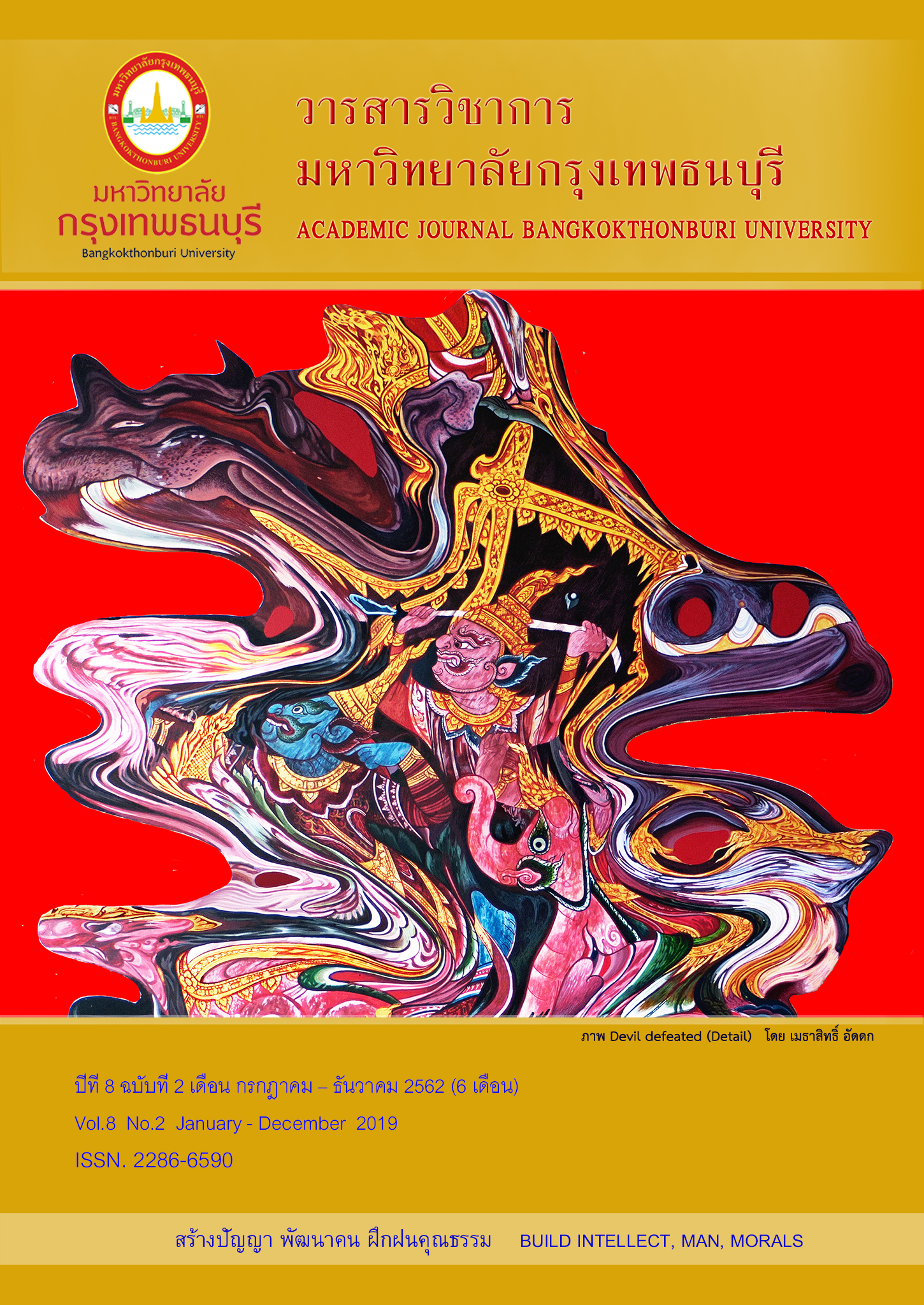Comparison of the Quality of Service Factor of Transportation Service Providers at Luang Prabang Subdistrict, Lao People’s Democratic Republic
Main Article Content
Abstract
This research aims to compare the level of service quality factors of logistics service providers in Luang Prabang Subdistrict, Lao People's Democratic Republic. By studying the level of expectation and service recognition from the perspective of both service providers and user of the logistics service contained with physical appearance, reliability of service, responding to users, building confidence in the service and care. The data are collected from the sampling of logistics service providers and logistics service users in Luang Prabang Subdistrict, Lao People's Democratic Republic, a total of 187 issues, divided into 95 logistic users (50.80%) and 92 logistics service providers (49.20%). In the 92 collected questionnaires of the logistics service provider, there are operational employees accounted for 54.21 percent. Most employees have lower education levels than the professional level accounted for 65.43% and most of the transportation channels are road accounted for 72.35%. For the 95 copies of collected questionnaire, 61.75% of the logistic service users are employees working as an operational position. Most employees received lower education levels than professional accounted for 59.36 percent. The transportation model that has been used for most services is road transport, water transportation, air transport services and rail transport services accounted for 74.48, 22.80, 42.03 and 0.65 respectively. Considering the level of expectations of service users, logistics companies and logistics service providers based their consideration on factors of service quality which it was found that all factors of service quality were able to respond as expected hold. From testing the differences between the factors of service quality of the logistics service company and the users of the logistics company as expected and after receiving the service (recognition), the Wilcoxon sign rank test method was found that there was no significant difference in the median between the level of expectation and the perceived service level of the quality assessment factors for services of logistics providers in all factors which can be considered by the probability of rejection the main hypothesis of each factors. However, the service user suggested that the logistics service company should add a parcel inspection system that can respond to real time checking. Then, the logistics service users will be able to confirm the receipt of the package more clearly and precisely.
Article Details
References
Bounoo, W., and Panee, S. (2019). Expectation and perception of Service Quality of Clients of the Accident and Emergency Department in Nongkhai Hospital. Journal of Heal Education, January – June 2019, Vol 42(1), 158-172
Jantrarasakkaowwan, P., and Buratsakorn, T. (2015). Quality Service Assessment: A Case Study of Land Transport Department Area 2. Journal of Eduational Management, No. 6(1) (July-December 2015), 126-140.
Parasuraman, A., Zeithaml, V. A., & Berry, L. L. (1985). A Conceptual Model of Service Quality and Its Implication for Future Research. Journal of Marketing, April, 35-48
Parasuraman, A., Zeithaml, V. A., & Berry, L. L. (1988). SERVQUAL: a multiple-item scale for measuring consumer perceptions of service quality. Journal of Retailing, Spring, 12-40
R Core Team (2018). R: A language and environment for statistical computing. R Foundation for Statistical Computing, Vienna, Austria. URL https://www.R-project.org/
Sandmaung, M., and Chonlatis, D. (2017). Students’ Expectation, Perception, And Satisfaction with Service Quality of International Programs of Thai Universities. Journal of Business Administration, The Association of Private Higher Education Institutions of Thailand, January-June 2017), No. 6(1)
Tanwimonrat, S. (2015). Library Network Management Model from Reginal Universities to Innovative Organizations. Veridian E-Journal, No. 8(1) 75-94


